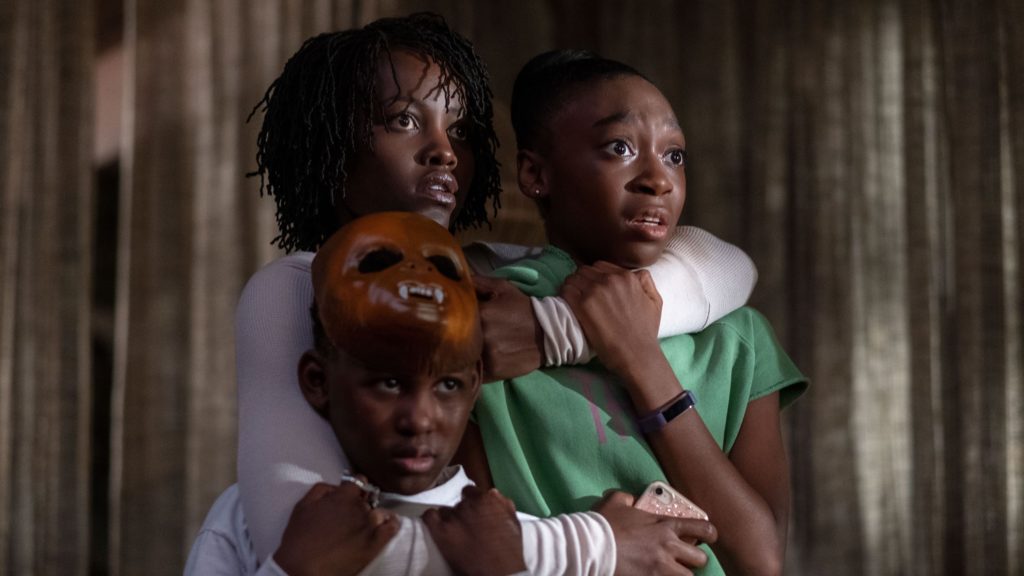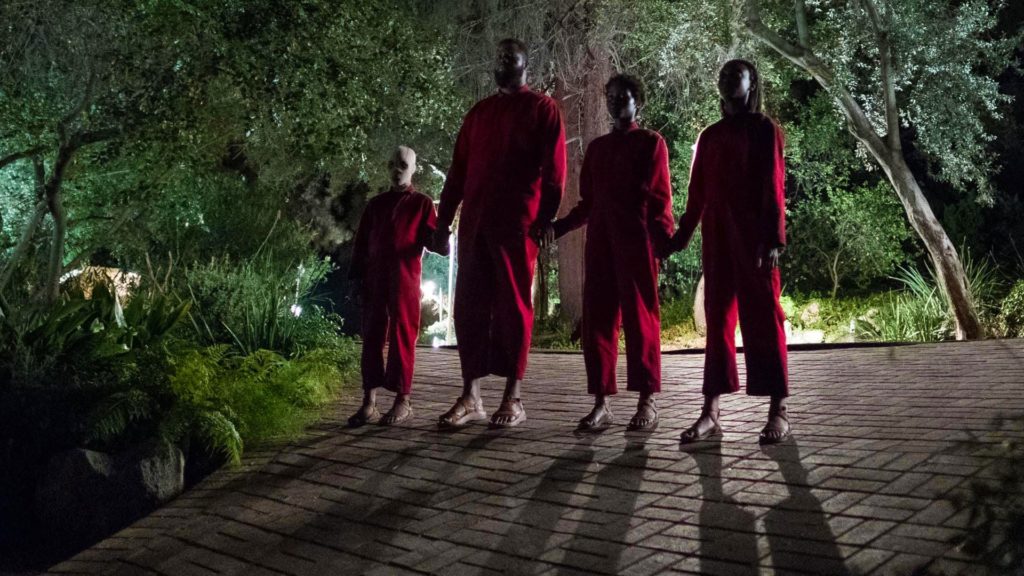Us course corrects on my big complaint about the otherwise-terrific Get Out: Where Jordan Peele’s debut gives away its secrets by about the middle point, Us gets stranger and less predictable as it builds. In general, this is a horror mode I prefer: the approach to the climax matching an increasing delirium.
And there’s no question that Us trends towards “delirious” as it approaches its conclusion. What starts as creepy home invasion thriller gradually turns into something more apocalyptic, more closely resembling a zombie movie. And then there’s the final 25 minutes which is something totally different entirely.

I don’t want to spend the entirety of this review doing a compare-and-contrast with Get Out, but I think there are some notable throughlines. The first is the aggressive undercurrent of racial and political allegory. Peele, like his obvious cinematic hero, John Carpenter, is rebelliously left-wing; Us has numerous parallels to They Live, including deep class consciousness. Us is significantly more untidy on its message delivery than wither They Live or Get Out, however. In fact, unlike Get Out, I think Us works better as straight-ahead horror than message movie; more on this in a moment.
One last Get Out comparison is that both movies do amazing work with actors’ expressive faces. Lupita Nyong’o has a camera-shatteringly beautiful and expressive face that gets to flip through a thousand different spotlit emotions. Some of her gazes straight into the lens are unforgettably creepy.
Anyways, let’s get to the meat of Us, which I like quite a bit. This is a tense and scary movie. Peele is an intuitive expert at crafting individual scenes and set pieces. I think Peele might be more of a visionary than an auteur; i.e., more image-maker than author. Us, moreso than Get Out, holds together with visual ideas within scenes better than as an overall artistic piece. (This shift towards great scenes but an uneven whole is a trend that continues even more strongly in Nope, Peele’s third film.) Nearly every scene in Us is constructed in a way to maximize tension: When the red-shirted intruders appear, they flit in and out of shadows and tight spaces long enough to be visible, but not so long for us to ever get used to their slightly alien quality. There’s a great running motif of small flames illuminating faces; this low, flickery lighting ratchets the suspense.

There is a slight problem with the film’s pacing, and I think this goes back to the “film vs scenes” struggle in Us, which has a root cause of an overall screenwriting sloppiness. As a front-to-back movie script, Us is fairly lumpy. Where this impacts the flow of the film is mostly in its first half: After a haunting opening in which a little girl gets trapped in a house of mirrors (that is so good and hurried it could have been even longer), we jump ahead to that girl, Adelaide (Nyong’o), as a grown woman, going on a vacation with her husband and two kids. And it takes awhile, a good half hour of slow-boil set up, to get to the meat of the story. (Another problem intensified in Nope.)
And then, as previously mentioned, we basically have three short films on top of that. One at the family’s beach house, one on the road, and one particularly balletic conclusion in an enclosed space. The last of these feels Argento-esque, as the violence approaches something graceful and expressive, with dancing as a key component of the horror. It’s a terrific ending, but the best scene takes place earlier, at the house of some family friends of the main characters: Elisabeth Moss and Tim Heidecker star as a somewhat obnoxious set of wealthy parents, leaving immediately striking impressions, so it’s compelling when they get pulled into the horror shenanigans. This is also when the home invasion aspect of creepy doppelgangers really shines as a figurative concept: each new cloned intruder represents some demon or character flaw of an existing character.
What Us adds up to is a jolting, scary movie with an ambitious loopiness that I found quite charming. There’s just enough messiness and incoherence to keep it from true greatness, but it’s my favorite of Peele’s works to date.
- Review Series: Jordan Peele
Is It Good?
Very Good (6/8)
Dan is the founder and head critic of The Goods. Follow Dan on Letterboxd. Join the Discord for updates and discussion.

